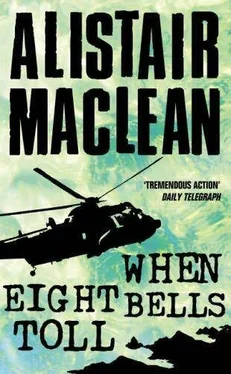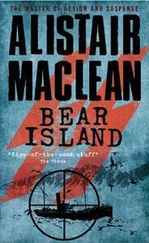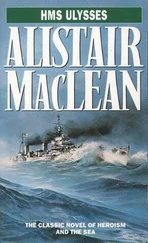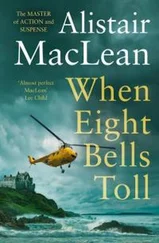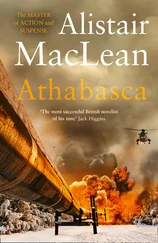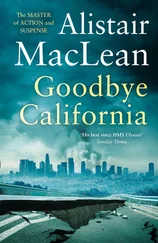Alistair MacLean - When Eight Bells Toll
Здесь есть возможность читать онлайн «Alistair MacLean - When Eight Bells Toll» — ознакомительный отрывок электронной книги совершенно бесплатно, а после прочтения отрывка купить полную версию. В некоторых случаях можно слушать аудио, скачать через торрент в формате fb2 и присутствует краткое содержание. Год выпуска: 1966, Жанр: Триллер, Боевик, на английском языке. Описание произведения, (предисловие) а так же отзывы посетителей доступны на портале библиотеки ЛибКат.
- Название:When Eight Bells Toll
- Автор:
- Жанр:
- Год:1966
- ISBN:нет данных
- Рейтинг книги:4 / 5. Голосов: 1
-
Избранное:Добавить в избранное
- Отзывы:
-
Ваша оценка:
- 80
- 1
- 2
- 3
- 4
- 5
When Eight Bells Toll: краткое содержание, описание и аннотация
Предлагаем к чтению аннотацию, описание, краткое содержание или предисловие (зависит от того, что написал сам автор книги «When Eight Bells Toll»). Если вы не нашли необходимую информацию о книге — напишите в комментариях, мы постараемся отыскать её.
When Eight Bells Toll — читать онлайн ознакомительный отрывок
Ниже представлен текст книги, разбитый по страницам. Система сохранения места последней прочитанной страницы, позволяет с удобством читать онлайн бесплатно книгу «When Eight Bells Toll», без необходимости каждый раз заново искать на чём Вы остановились. Поставьте закладку, и сможете в любой момент перейти на страницу, на которой закончили чтение.
Интервал:
Закладка:
Charlotte Skouras believed me. I don't know why, but she believed me. While she was stripping off my makeshift bandage, cleaning the wound and re-bandaging it very efficiently, a process I suffered with unflinching fortitude because I didn't want to destroy her image of a secret service agent by bellowing out loud at the top of my voice, I told her what had happened and there was no doubt that she believed me without question. I thanked her, for bandage and belief, and she smiled.
Six hours later, twenty minutes before our eleven p.m. dead-line for taking off in the Firecrest, she was no longer smiling. She was looking at me the way women usually look at you when they have their minds set on something and can see that they are not going to get their own way: a rather less than affectionate look.
"I'm sorry, Charlotte," I said. "I'm genuinely sorry, but it's not on. You are not coming with us, and that's that." She was dressed in dark slacks and sweater, like one who had — or had had — every intention of coming with us on a midnight jaunt. "We're not going picnicking on the Thames. Remember what you said yourself this morning. There will be shooting. Do you think I want to see you killed?"
"I'll stay below," she pleaded. "I'll stay out of harm's way. Please, Philip, let me come."
"No."
"You said you'd do anything in the world for me. Remember?"
"That's unfair, and you know it. Anything to help you, I meant. Not anything to get you killed. Not you, of all people."
"Of all people? You think so much of me?"
I nodded.
"I mean so much to you?"
I nodded again. She looted at me for a long time, her eyes wide and questioning, her lips moving as if about to speak and yet not speaking, then took a step forward, latched her arms around my neck and tried to break it. At least, that was the way it felt, the dead Quinn's handiwork was still with me, but it wasn't that at all, she was clinging to me as she might cling to a person who she knew she would never see again. Maybe she was fey, maybe she had second sight, maybe she could see old Calvert floating, face down, in the murky waters of the Dubh Sgeir boathouse. When I thought about it I could see it myself, and it wasn't an attractive sight at all. I was beginning to have some difficulty with my breathing when she suddenly let me go, half-led, half-pushed me from the room and closed the door behind me. I heard the key turn in the lock.
"Our friends are at home," Tim Hutchinson said. We'd circled far to the south of Dubh Sgeir, close in to the southern shore of Loch Houron and were now drifting quickly on the flood tide, engines stopped, in an east by northerly direction past the little man-made harbour of Dubh Sgeir. "You were right, Calvert. They're getting all ready for their moonlit flitting."
"Calvert is usually right," Uncle Arthur said in his best trained-him-myself voice. "And now, my boy?"
The mist had thinned now, giving maybe a hundred yards' visibility. I looked at the T-shaped crack of light showing where the boathouse doors didn't quite meet each other in the middle and where the tops of the doors sagged away from the main structure.
"Now it is," I said. I turned to Hutchinson. "We've all of a fifteen foot beam. That entrance is not more than twenty wide. There's not a beacon or a mark on it. There's a four knot tide running. You really think it can be done — taking her through that entrance at four or five knots, fast enough to smash open those doors, without piling ourselves up an the rocks on the way in?"
"There's only one way to find out." He pressed the starter button and the warm diesel caught fire at once, its underpass exhaust barely audible. He swung her round to the south on minimum revs, continued on this course for two cables, westwards for the same distance, curved round to the north, pushed the throttle wide open and lit a cigar. Tim Hutchinson preparing for action. In the flare of the match the dark face was quiet and thoughtful, no more.
For just over a minute there was nothing to be seen, just the darkness and patches of grey mist swirling past our bows. Hutchinson was heading a few degrees west of north, making allowance for the set of the tide. All at once we could see it, slightly off the starboard bow as it had to be to correct for the tide, that big T-shaped light in the darkness, fairly jumping at us. I picked up the submachine-guns, opened and latched back the port wheelhouse door and stood there, gun in left hand, door-jamb in right, with one foot on the outside deck and the other still in the wheelhouse. Uncle Arthur, I knew, he was similarly positioned on the star-board side. We were as firmly braced as it was possible to be. When the Firecrest stopped, it would stop very suddenly indeed.
Forty yards away, Hutchinson eased the throttle and gave the wheel a touch to port. That bright T was even farther round on our starboard side now, but directly in line with us and the patch of dark water to the west of the almost phosphorescently foaming whiteness that marked the point where the flood tide ripped past the outer end of the eastern breakwater. Twenty yards away he pushed the throttle open again, we were heading straight for where the unseen west breakwater must be, we were far too far over to port, it was impossible now that we could avoid smashing bow first into it, then suddenly Hutchinson had the wheel spinning to starboard, the tide pushing him the same way, and we were through and not an inch of Uncle Arthur's precious paint-work had been removed. Hutchinson had the engine in neutral. I wondered briefly whether, if I practised for the rest of my life, I could effect a manoeuvre like that: I knew damned well that I couldn't.
I'd told Hutchinson that the bollards were on the starboard side of the boathouse, so that the diving-boat would be tied up on that side. He angled the boat across the tiny harbour towards the right-hand crack of light, spun the wheel to port till we were angling in towards the central crack of light and put the engine full astern. It was no part of the plan to telescope the Firecrest's bows against the wall of the boathouse and send it — and us — to the bottom.
As an entrance it erred, if anything, on the spectacular side. The doors, instead of bursting open at their central hasps, broke off at the hinges and we carried the whole lot before us with a thunderous crash. This took a good knot off our speed. The aluminium foremast, with Uncle Arthur's fancy telescopic aerial inside, almost tore the tabernacle clear of the deck before it sheared off, just above wheelhouse level, with a most unpleasant metallic shrieking. That took another knot off. The screws biting deep in maximum revs astern, took off yet another knot, but we still had a fair way on when, amid a crackling, splintering of wood, partly of our planking but mainly of the doors, and the screeching of the rubber tyres on our well-tendered bows, we stopped short with a jarring shock, firmly wedged between the port quarter of the diving-boat and the port wall of the boathouse. Uncle Arthur's feelings must have been almost as bruised and lacerated as the planking of his beloved Firecrest. Hutchinson moved the throttle to slow ahead to keep us wedged in position and switched on the five-inch searchlight, less to illuminate the already sufficiently well-lit shed than to dazzle bystanders ashore. I stepped out on the deck with the machine-pistol in my hands.
We were confronted, as the travel books put it, with a scene of bustling activity, or, more precisely, what had been a scene of bustling activity before our entrance had apparently paralysed them all in whatever positions they had been at the time. On the extreme right three faces stared at us over the edge of the hold of the diving-boat, a typical forty-five-foot M.F.V. about the same size as the Charmaine, Two men on deck were frozen in the act of lifting a box across to the hold. Another two were standing upright, one with his hands stretched above his head, waiting for another box swinging gently from a rope suspended from a loading boom. That box was the only moving thing in the boathouse. The winchman himself, who bore an uncommon resemblance to Thomas, the bogus customs officer, one lever against his chest and another held in his outstretched right hand, looked as if the lavas of Vesuvius had washed over him twenty centuries ago and left him frozen for ever. The others, backs bent, were standing on the wall at the head of the boathouse, holding a rope attached to a very large box which two frogmen were helping to lift clear of the water. When it came to hiding specie, they had one-track minds. On the extreme left stood Captain Imrie, presumably there to supervise operations, and, beside him, his patrons, Lavorski and Dollmann. This was the big day, this was the culmination of all their dreams, and they weren't going to miss a moment of it.
Читать дальшеИнтервал:
Закладка:
Похожие книги на «When Eight Bells Toll»
Представляем Вашему вниманию похожие книги на «When Eight Bells Toll» списком для выбора. Мы отобрали схожую по названию и смыслу литературу в надежде предоставить читателям больше вариантов отыскать новые, интересные, ещё непрочитанные произведения.
Обсуждение, отзывы о книге «When Eight Bells Toll» и просто собственные мнения читателей. Оставьте ваши комментарии, напишите, что Вы думаете о произведении, его смысле или главных героях. Укажите что конкретно понравилось, а что нет, и почему Вы так считаете.
